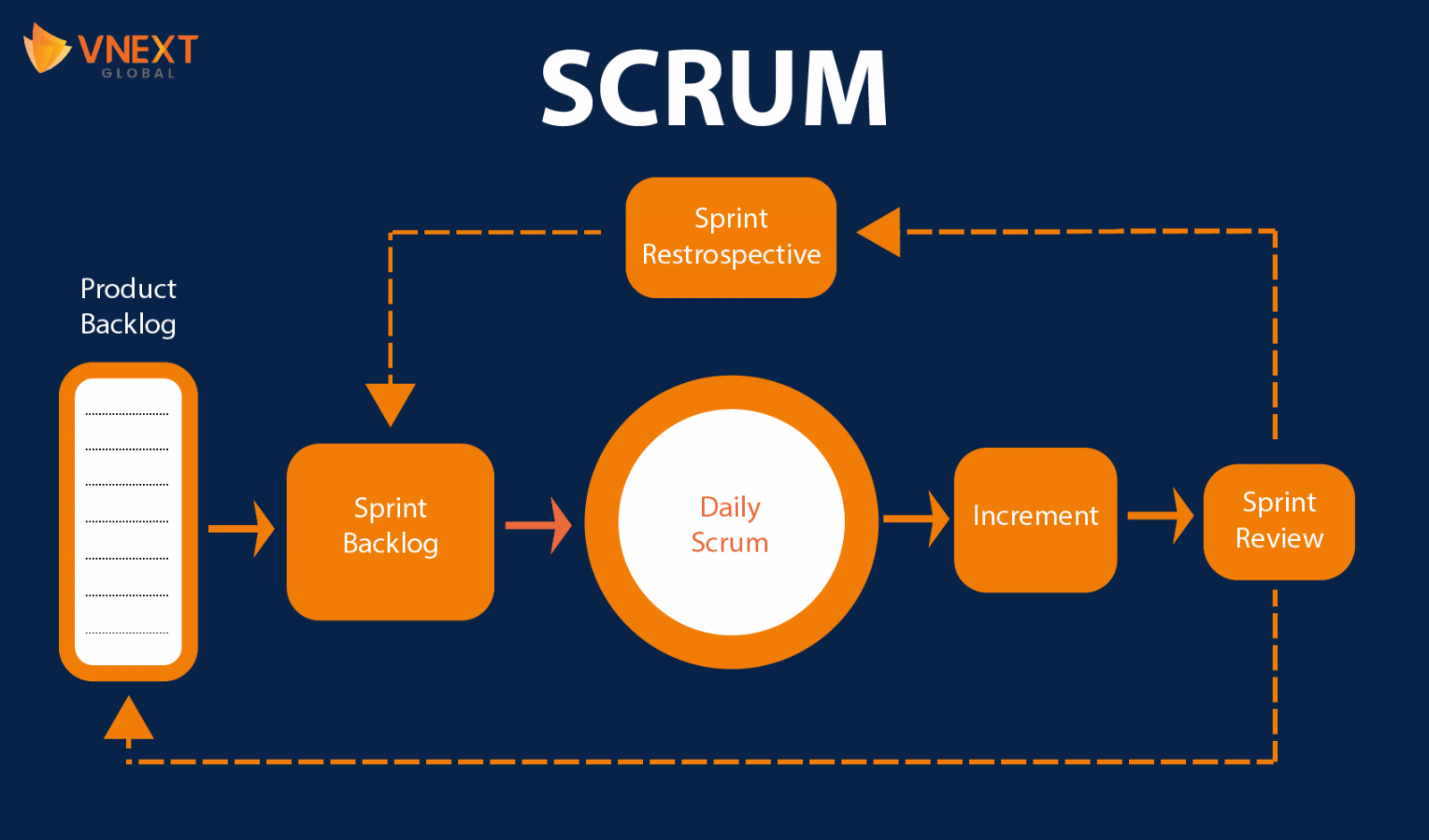Scrum is one of the most popular software management models. In this article, from the viewpoint of an IT outsourcing company, let’s take a look and see why Scrum can gain such a reputation.
The definition of Scrum
Scrum is actually a subset of Agile methodology. Its activities follow defined, specific practices and roles throughout the software development process.
Scrum contains many short and periodic phases, called “sprints”. Each Sprint usually lasts from 2 to 4 weeks, and requires quick feedback and reflection from both clients and team members.
The main focus of Scrum
-
Tangible outcomes: After each Sprint, the team must provide a complete result. When a client requests a demo or a draft of the final product, it must be able to be given to them with the least amount of work.
-
Openness: Each team member must be honest and straightforward about their personal development in order for the Scrum team to accomplish the progress in the shortest time. The daily Scrum meeting's goal is to identify and solve problems, encouraging team members to explain their opinions, ideas and challenges.
-
Focus: Scrum masters usually lessen the amount of tasks or priorities assigned to each team member throughout sprints to help them stay focused. Individuals may also stay focused on their assigned work by encouraging full team involvement in daily Scrum meetings.


Steps of Scrum
1. Product backlog
The Product Backlog is a list of all the things needed for that product, outlined and ordered by the Product Owner. Product Backlog will never end, it exists and evolves with the development of that product.
2. Sprint backlog
This stage defines what is going to be done in the Sprint and how it is going to be done. This meeting is a must before all each Sprint comes to implementation. It reassures the next objectives, defines what are upcoming steps of the project, and sets deadlines based on the Product Backlog. Each Sprint contains different features.
3. Daily Scrum
The Daily Scrum's goal is to analyze progress and optimize solutions throughout the sprint. Team members evaluate what they have done, and create a strategy for the following 24 hours. A brief meeting takes place every day.
Three questions are addressed one by one:
-
What did I do yesterday?
-
What are my tasks for today?
-
What help should I require?

The Scrum Master should attempt to resolve any issues or challenges that occur.
4. Sprint Review
The sprint review aims to highlight what work has been performed on the product backlog, so that the team can come up with better solutions for future delivery. The completed sprint is evaluated, and there should be a visible improvement in the product to show the client.
5. Sprint Retrospective
At the end of each sprint, all team members review the completed goals. They must note the strengths and weaknesses; therefore, they don't make the same mistakes again. From the viewpoint of the development process, this stage is necessary to implement improvements. The sprint retrospective's purpose is to identify potential process changes and create a strategy to implement them in the following Sprint.
Read more: 8 Software Development Models You Can Apply To IT Projects
Of course, there are other approaches used in project planning, such as Kanban or XP, and you can choose one based on your needs.
Don’t forget to follow VNEXT Global for useful IT-related information!












